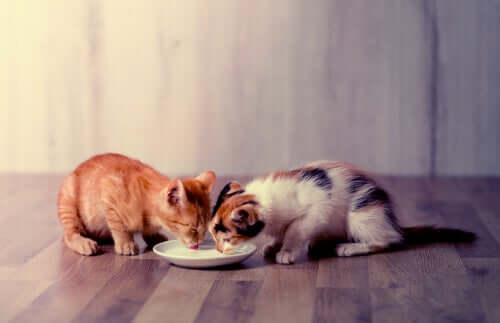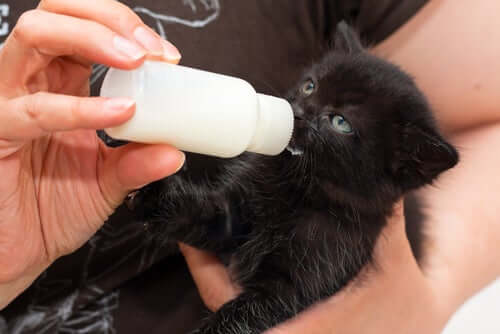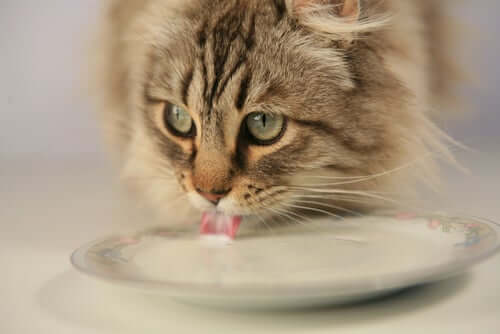Cats and Milk: What's the Truth?

The picture of a cat drinking milk is pretty common in people’s minds. When they’re only small kittens, they need milk as all babies do. But as time goes by, this fact may change. So, are cats and milk friends or not? Let’s find out.
We must remember that a kitten needs to drink breast milk. But this milk is by no means the same as cow’s milk. As a cat grows, we must know if the milk we’re giving them contains beneficial properties for them or not.
Cats and milk: Should they drink it?

To cut to the chase: no, adult cats can’t drink milk. As crazy as it may sound, and although we’ve always thought of cats drinking and loving milk, they’re incompatible. As the cat grows, they become lactose intolerant. So more than benefiting your cat, you may be giving them a sore tummy and gas.
Therefore, although we have always related cats with milk, there’s nothing further from the truth. Felines can’t drink any kind of milk. Not even yogurt or any other kinds of dairy products, for instance.
That said, some cats may tolerate it better than others. But many others develop lactose intolerance as they become adults. This means as a general rule that adult kittens shouldn’t be given milk to drink.
What if my cat loves milk?
If your cat loves milk, you may give them some in moderation. You must remember that milk makes digestion difficult. Therefore, make sure your cat doesn’t have any allergies or an intolerance to lactose.
How can I know if my cat isn’t allergic to milk?
Milk allergy is one of the most common cat ailments. So, before deciding whether or not to give milk to your feline, you must be sure that they don’t have any kind of allergy to it.
This reaction occurs because the animal doesn’t have enough enzymes in their stomach to break down the lactose molecules and make it digestible and lightweight. Whenever this happens, the animal’s body reacts negatively. Afterwards, it may create ailments such as diarrhea, vomiting, and others.
These are the most common symptoms of milk allergy. Skin abnormalities may also be seen. Normally, all of these symptoms can happen a few minutes after the animal ingests the milk, although they can occur a few days later.
If your cat shows any of the symptoms and you’re not sure what’s causing them, observe them for the next few hours after the milk is taken. But, most importantly, go to your vet.
So, what’s the best diet for my cat?

As we always recommend, the vet is the person who can advise you best in these matters.
Although it’s advisable to give them normal cat food, this doesn’t mean that from time to time you can’t give them treats. Sometimes even milk if they like it, and don’t have an allergic reaction to it.
You must make sure that the food you buy provides all the nutrients they need, as well as vitamins and minerals. It’s also necessary to check if it’s the appropriate food for their age range.
As you can see, cats and milk aren’t very compatible friends after all. An adult feline doesn’t need milk at all. Therefore, if you still decide to give it to them, it should be in very small amounts and with very long periods of time between servings
They say we are what we eat, and in your cat’s case, this is also true. As a result, if you want a healthy and happy cat, always provide a healthy diet for them.